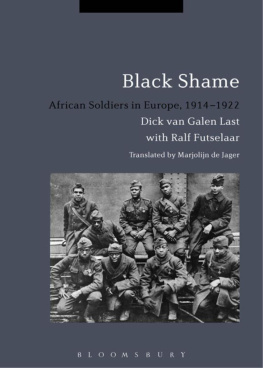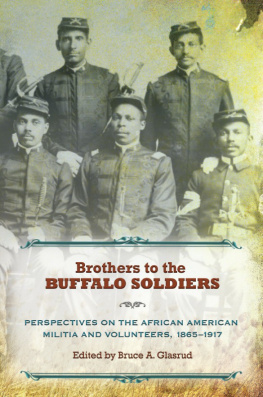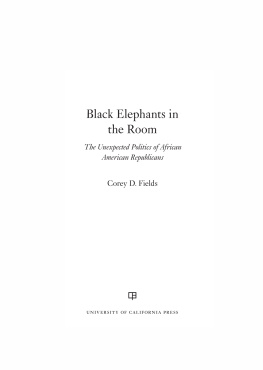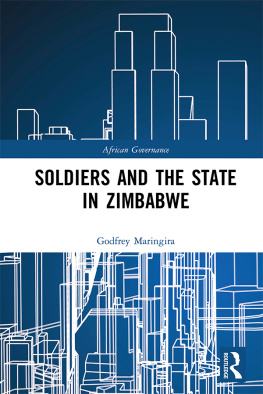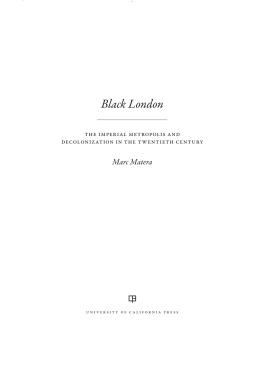Dick van Galen Last died in the early morning of 2 February 2010. A mere two weeks earlier, on 21 January, he had successfully defended the Ph.D. thesis on which this book is based. After his untimely death at 57, it seemed that his lifes work would never appear in print. To his friends and colleagues, who were acutely aware how important this project had been for Dick, and how much it could mean for others, the idea that the text would simply disappear in the Universitys vaults was hard to stomach. A few months later Dicks employer, the Netherlands Institute for War Documentation (NIOD) asked me to prepare the Dutch manuscript for publication. Dick had worked there as a librarian since the early 1970s.
I was already well acquainted with the text of the thesis. In the previous years, I had read and commented on at least two versions of each of the chapters, as had several other people. As his health began failing, and failing dramatically, in the course of 2008 and 2009, Dick had stepped up the pace of his writing. He recruited several of his friends as volunteer proofreaders, discarded a large body of his earlier texts, and wrote nine long chapters outlining the history of the deployment of black soldiers in Europe between 1914 and 1922, the topic on which he had been working for more than a decade.
Dick was exceptionally knowledgeable and his thesis bears testament of his erudition. The list of sources alone comprises 36 densely printed pages and the text itself provided an almost comprehensive discussion of the subject, with an enormous geographical scope and presented with an extensive introduction to its historiographical context. Dick was happy that his Ph.D. defence was behind him, but he did not believe the manuscript was ready for publication. He realized his thesis was too long and too encyclopaedic to appear in book form, and started work on a shorter version almost immediately after his defence. This adapted, abbreviated version was to be published in Dutch and had to serve as the basis for an English translation. His untimely death meant that he could do little more than roughly outline the book he was hoping to publish.
In preparing this manuscript I have chosen to abandon the original structure of the thesis. The thesis was organized geographically, and consisted (mostly) of chapters focusing on specific countries or regions. This structure had allowed Dick to write, if not exhaustively, then at least at considerable length, about the ways in which different European and North American nations developed their own specific attitudes to people of African descent, as reflected both in official policies and in public discourse, and explain how these histories shaped their reactions to the advent of African and African American soldiers on European battlefields after 1914. This manuscript, which is available from the NIOD library, is a rich source of information for any professional working in the field, but it is no easy read and rather too lengthy to be published as a single volume.
The book that was published in 2012, of which this book is an edited translation, is set up chronologically. This allows the reader to follow the three most important narrative lines set out by Dick, namely how African and Afro-American soldiers ended up as soldiers in Europe, how Europeans reacted to their presence, and finally how their experiences influenced their views of the global political order, which at the time was still dominated by people of European descent. By rewriting the text in this way, I have tried to do justice to the themes in the book that Dick felt were most important. Other topics that were discussed at length in the original volume, such as the intellectual history of racism and the impact of the war on African-inspired art in Europe, have been left out or have been shortened drastically.
I have not had the opportunity to discuss the choices made in the production of this book, his book, with Dick. I do not know whether he would have approved of this reworking of his thesis. I am not even sure if he would have approved of me as a posthumous editor and co-author, or if he would have wanted his work to be published at all after his death. What I do know is that Dick did not write history to achieve academic recognition, although he was undeniably chuffed when he was awarded his Ph.D. cum laude, but to share his knowledge with the wider world and, specifically, to show how racist attitudes can develop, and can be purposely developed for political gain. I think that this message, albeit perhaps not entirely in the form that he had envisaged, comes across loudly and clearly in this book.
When asked about his motivation to take on this enormous project, to visit archives spread over three continents, to read thousands of books and articles, Dick would not dwell on any greater message that his work may contain. Rather, he would show old photographs of tired, uniformed Africans in destroyed European landscapes. What is this guy thinking?, he would ask, what does he feel? Of course, almost a century later, there was little we could know about the emotions, the despair, the pain or the excitement these soldiers may have felt as they witnessed is the orgy of violence that had enveloped Europe. Most of them had been illiterate, all of them were dead. Thousands of them had not even survived the war. There was no real knowing what they had felt, and no amount of research was going to change that, but Dick was determined to at least do them justice.
The final years of Dicks life were hard. Various diseases caused him increasing pain, discomfort and exhaustion. Yet he remained cheerful and optimistic in the face of his misfortunes. He continued to work on his thesis, just as he remained a loyal, caring friend to me and to many others. Today I find that, just as Dick knew nothing about the feelings of his research subjects in the trenches at the Somme, I never asked how he felt about the problems and dangers he was facing, or about his concerns for the future. There were always plenty of African soldiers, colleagues, new and old books, new and old wine, and of course football to discuss. As a result I can only hope that I have done him justice with this book.
This translation could never have been published without help. Marjolijn de Jager translated the Dutch manuscript and travelled from Connecticut to Amsterdam to discuss the English text with me. I can speak for both of us when I thank the Vertalershuis Amsterdam for the hospitality she enjoyed there. Bob Moore made hundreds of suggestions for improvements to the text. Rick Fogarty read the text and pointed out several glaring mistakes. Eveline Buchheim arranged funding for the project, from the Dutch foundation for literature. Finally, I would like to thank Marc van Galen Last, Dicks elder brother, who personally covered the remaining costs for the translation. I am grateful for his trust in me and I hope that the result, this book, will not disappoint him.
This book would not exist without the help of the following people: Gerard Aalders, Kiyoshi Abe, Jean Astruc, Maaike van Berkel, Hans Blom, Eveline Buchheim, Tony Chafer, Alice Conklin, Dominiek Dendooven, Cyr Descamps, Kent Fedorowich, Rick Fogarty, Marc van Galen Last, Wim van den Groenendaal, Sylvia W. de Groot, Dana Hale, Arnold Heumakers, Ranne Hovius, Marjolijn de Jager, Jennifer Keene, Ewoud Kieft, David Killingray, Jeannette Klusman, Christian Koller, Vincent Kuitenbrouwer, Johan van Langen, Dirk Luyten, Kees van Meel, Marc Michel, Jaap de Moor, Bob Moore, Dan Morrow, Khalid Ndiaye, Bart Pauw, Marjolijn Pouw, Remco Raben, Fred Reurs, Christian Rogowski, Peter Romijn, Sylvain Sankal, Marc Schindler-Bondiguel, William Schneider, Pierre Schoentjes, Richard Smith, Jeannick Vangansbeke, Karel Velle, Antoon Vrients, Dikus Waanders, Annette de Weeger and Jolande Withuis.

